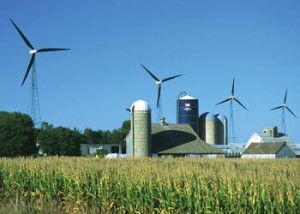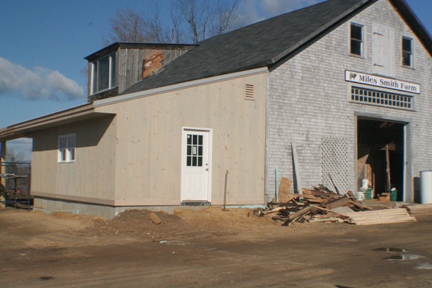Agriculture Secretary Tom Vilsack has announced grants for more than 900 agricultural producers and rural small businesses across the country to implement renewable energy and energy efficiency measures in their operations. Secretary Vilsack made the announcement as part of President Obama’s rural economic bus tour in the Midwest where he highlighted efforts underway to reduce our country’s dependence on foreign oil, which will increase the economic competitiveness of rural America and promote job creation.

U.S. Secretary of Agriculture Tom Vilsack
“These investments enable our farmers, ranchers and rural small business owners to develop renewable energy systems and make energy efficiency improvements that will save them thousands of dollars in energy costs each year,” Vilsack said. “This funding is an important part of the Obama Administration’s plan to conserve natural resources, create jobs and lead our country on the path to becoming more energy independent.”
The grants are being provided through the Rural Energy for America Program (REAP), a 2008 Farm Bill initiative. REAP offers funds for farmers, ranchers and rural small businesses to purchase and install renewable energy systems and make energy-efficiency improvements. These federal funds leverage other funding sources for small businesses. In all, USDA announced more than $11.6 million in energy grants today.
According to Molly Lambert, USDA State Director for Rural Development, “The REAP program is helping many agricultural producers and rural small businesses reduce energy consumption.” For example, Larry Moore of Loudon, NH, was selected to receive an $5,862 grant to make energy-efficiency improvements to his maple sugaring operations, included in these improvements is the installation of an in series 2000 gph reverse osmosis system which is designed to increase energy efficiency by removing water from the sap prior to boiling.
Main Street Properties of Warner, LLC, located in Warner, NH will use an $18,625 grant to install an 11.25kw photovoltaic system that will generate solar electricity for their real estate management business. The pole mounted solar system will offset 65 percent of the annual energy consumption.
Scenic Nursery & Landscaping, Inc will use their $16,500 grant to install a 10kw photovoltaic solar system to replace electricity, The installation of the solar system is expected to generate 14,296 kHw of electricity.As a result, this project will significantly reduce the applicants reliance on fossil fuel based electricity and help to retain 8 jobs.
Funding of each award is contingent upon the recipient meeting the conditions of the grant agreement. Grants can finance up to 25 percent of a project’s cost, not to exceed $500,000 for renewables, $250,000 for efficiency. For a complete listing of Rural Energy for America Program grant recipients announced today, please click here.
USDA, through its Rural Development mission area, administers and manages housing, business and community infrastructure and facility programs through a national network of state and local offices. Rural Development has an existing portfolio of more than $155 billion in loans and loan guarantees. These programs are designed to improve the economic stability of rural communities, businesses, residents, farmers and ranchers and improve the quality of life in rural America.










 In addition, the program also provides funding to complete feasibility studies for renewable energy generation systems and energy efficiency improvements. For information on how to apply for assistance, contact Steven Epstein in the Concord, New Hampshire office at 603-223-6041. The deadlines for submitting completed REAP applications are June 15 and June 30, depending on the type of project to be funded.
In addition, the program also provides funding to complete feasibility studies for renewable energy generation systems and energy efficiency improvements. For information on how to apply for assistance, contact Steven Epstein in the Concord, New Hampshire office at 603-223-6041. The deadlines for submitting completed REAP applications are June 15 and June 30, depending on the type of project to be funded.  In 2010, Miles Smith Farm was awarded a Rural Energy for America Program (REAP) Grant to help produce solar thermal energy for the new farm store to be added to the south side of the Miles Smith Farm barn. The NH Community Loan Fund also provided Miles Smith Farm with a loan and grant to help with the project to make the 1850s barn solar efficient. Solar collectors on the roof of the barn will provide hot water to heat a concrete slab on the floor of the new store, which is scheduled to be completed by the end of April.
In 2010, Miles Smith Farm was awarded a Rural Energy for America Program (REAP) Grant to help produce solar thermal energy for the new farm store to be added to the south side of the Miles Smith Farm barn. The NH Community Loan Fund also provided Miles Smith Farm with a loan and grant to help with the project to make the 1850s barn solar efficient. Solar collectors on the roof of the barn will provide hot water to heat a concrete slab on the floor of the new store, which is scheduled to be completed by the end of April.